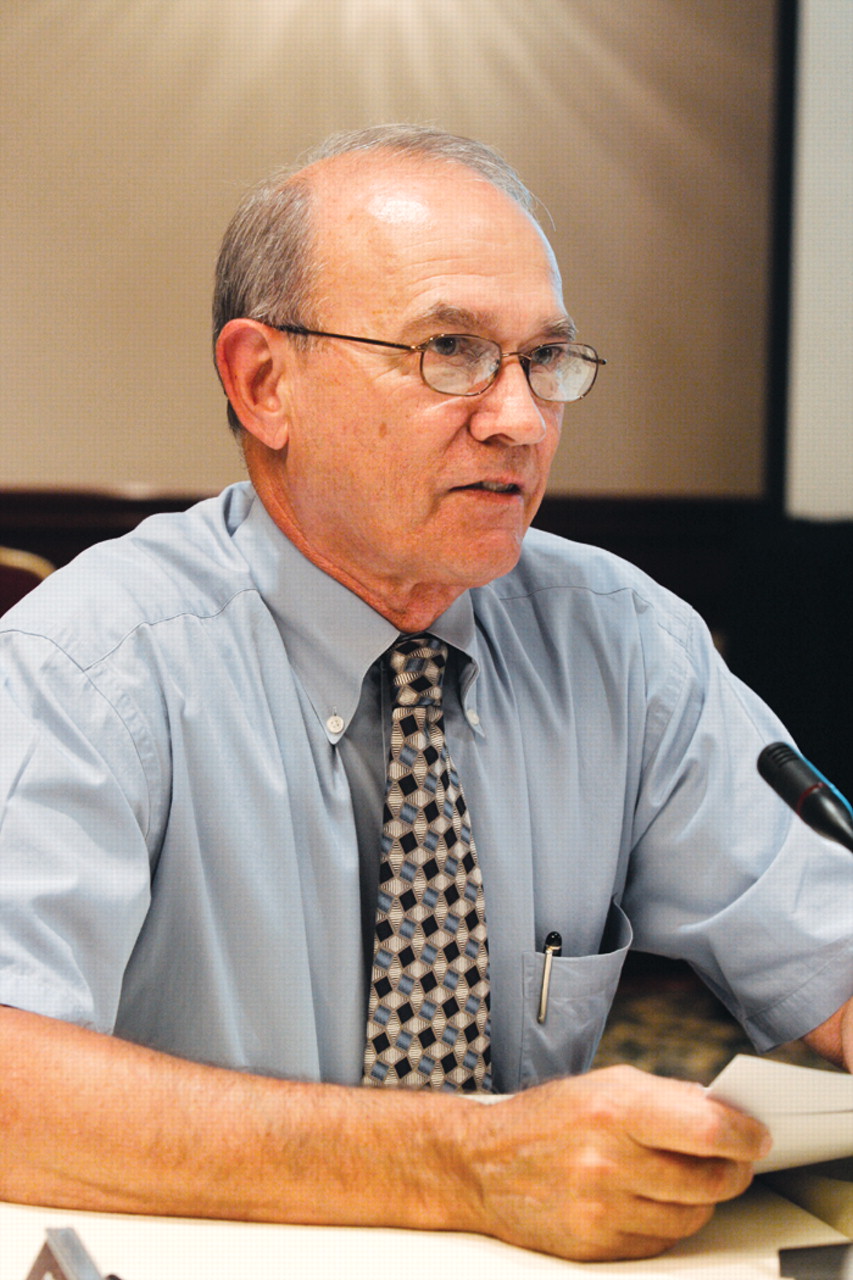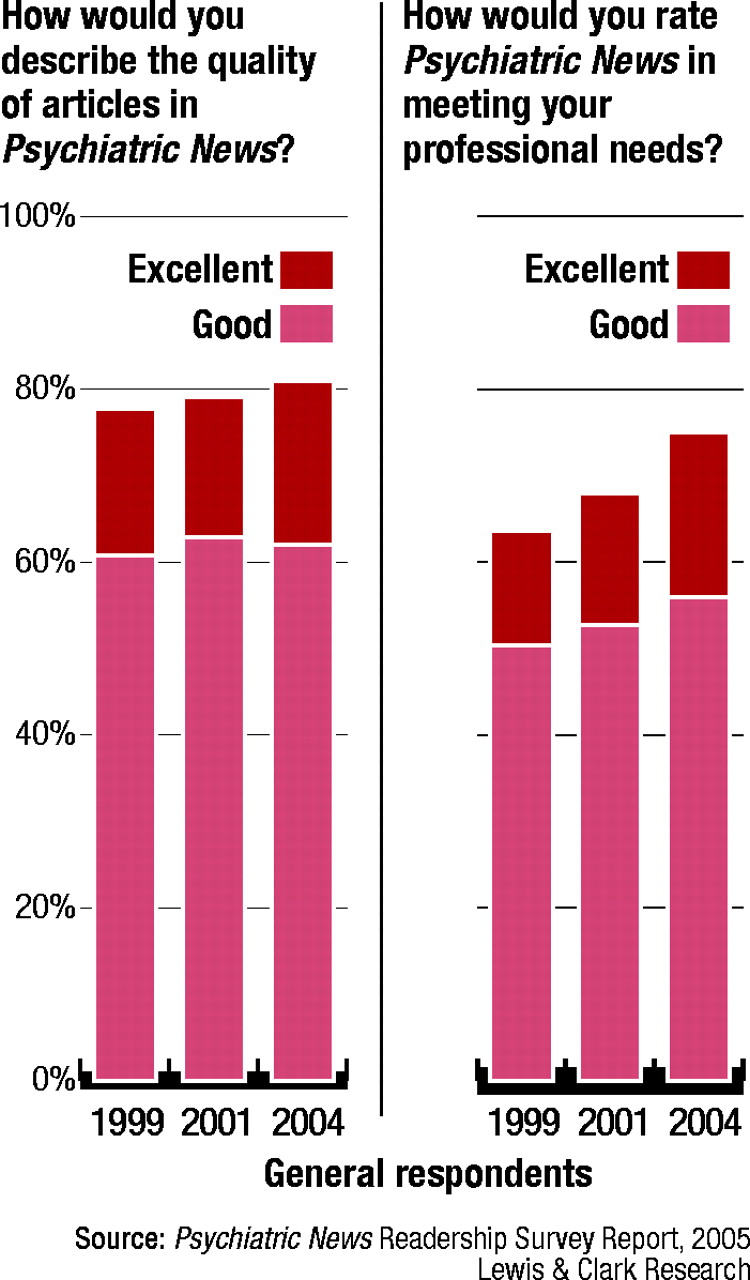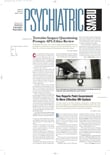Are you being served? That was what the editors of Psychiatric News (PN) wanted to find out last fall as we surveyed APA members in our latest readership survey, the third we have conducted in the last six years.
Our readers told us that PN is in fact doing well, with 75 percent of respondents rating the newspaper as excellent or good in meeting their professional needs, and 81 percent rating the quality of articles as excellent or good. In addition, 75 percent of respondents were very satisfied or satisfied with PN's content.
Readers also indicated that they are pleased with the paper's design, with 70 percent of respondents agreeing or strongly agreeing that the overall design and layout make the newspaper easy to read.
Compared with our competitors, PN was deemed to be of more value to readers and was the preferred publication for information on mental health/psychiatric issues. It was also rated the best psychiatry-related newspaper for employment opportunities.
The survey obtained a 50 percent response rate from a random sample of 1,000 APA members. The demographic information obtained from the respondents closely parallels the demographics of APA members in general, so we are reasonably certain that the conclusions are representative of the broader membership.
The survey was also sent to all members of the Board of Trustees and Assembly. Because the random sample was expected to capture few Canadian members, a separate e-mail survey was sent to all Canadian members for whom APA had e-mail addresses. The results for those groups were tabulated separately from those of the random sample of members. The data in this article refer to the responses from the randomly sampled members. The confidence level of the results is +/- 4.4 percent.
Readers were also asked to rank their interest in the newspaper's regular features. They rated Viewpoints, From the President, Letters to the Editor, and the Medical Director's Desk (the medical director's column) highest. Reports of Board and Assembly actions and the Residents' Forum were ranked relatively low (see chart on page 22).
The feedback on topics of interest to readers paralleled closely the results of prior surveys. Readers were most interested in clinical news and information, psychopharmacology, psychotherapy, and research news. They were least interested in reading news about APA members and district branch activities. However, for even the lowest-ranked items a sizable portion of readers (about one-fourth to one-third) still indicated that these topics were of substantial interest to them (see chart on page 22).
The survey also provided an opportunity for readers to comment on how PN could be improved, and numerous respondents took advantage of that forum.
As one might expect, there were some contradictory opinions—for example, some wanted articles to provide more details, though most readers who commented on article length preferred shorter articles. One of the most common requests was to reduce the number of articles that “jump” from one page to another. There were several requests to add an opportunity to obtain CME credit. A few respondents suggested in one way or another that PN was too much of a house organ. Some respondents felt there was too little focus on Canadian issues.
Readers may wonder how we use the results of these surveys. We have responded to past surveys by increasing considerably the amount of coverage of clinically related topics. We will continue to focus heavily on this area as the recent survey shows that reader interest in such topics remains strong.
The results also indicate that there is a diverse range of areas in which APA members are interested, so we will continue to provide coverage that fits the wide-ranging interests of the various subgroups of the membership.
We are aware from this and previous surveys of readers' dislike of articles that jump from one page to another. We do make considerable effort to keep these to a minimum in each issue. The section heads that are a key feature of PN's design, however, prevent us from eliminating jumps entirely.
We will also explore the possibility of offering CME credit within PN ways to better address issues that may be of greater interest to Canadian members.
All of us on the staff thank the members who participated in the survey. I invite all readers to help shape our coverage by providing ideas and feedback to me and our staff. Please contact us at
[email protected].▪



